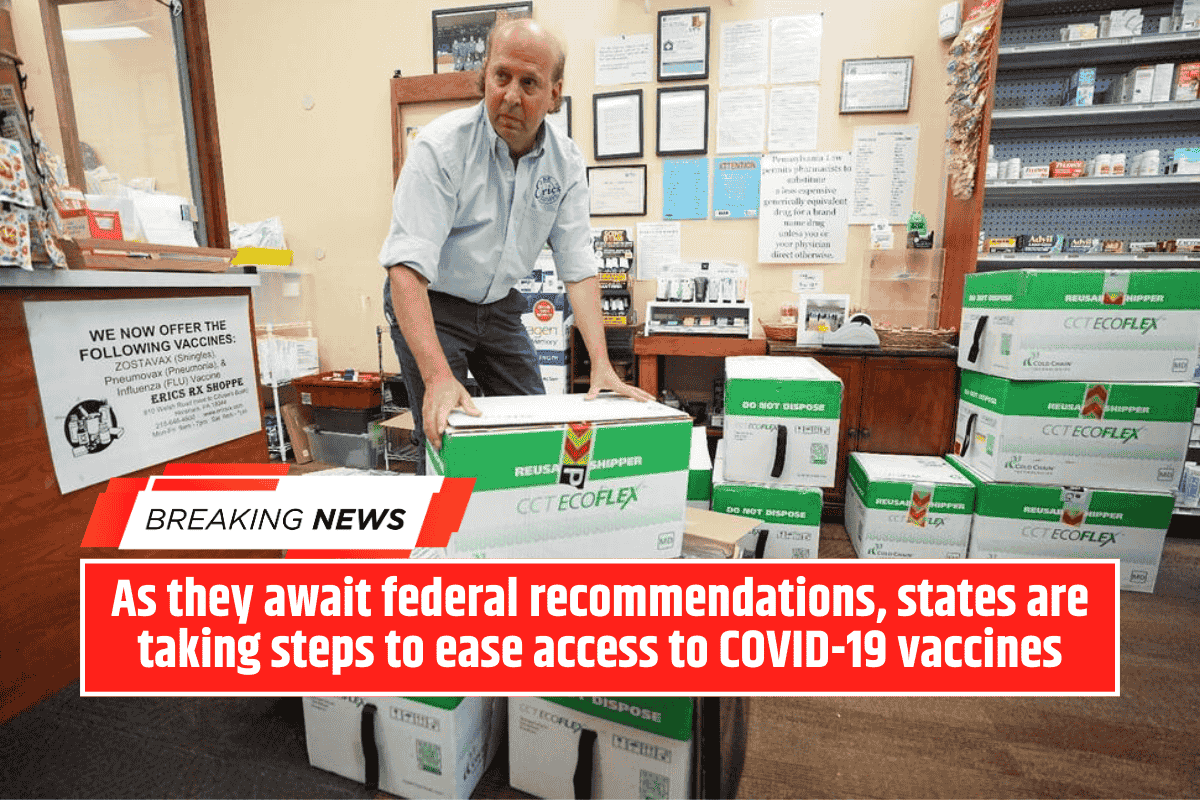In 2025, getting a COVID-19 vaccine isn’t as simple as it used to be. Unlike previous years, where vaccines were recommended for almost everyone and widely available, things have become more complicated.
Many people now face roadblocks, especially when it comes to getting a shot without a doctor’s prescription. But some states — especially those led by Democratic governors — are stepping up to make access easier.
Why Getting a COVID-19 Shot Is Harder in 2025
This year, the U.S. government changed its guidance. COVID-19 vaccines are no longer recommended for everyone above 6 months of age.
Now, only people aged 65 and older — or younger people with health issues like asthma or obesity — are advised to get the shot. This new rule has confused many and made it harder for pharmacies to offer vaccines without needing a doctor’s prescription.
To make matters worse, the new leadership at the U.S. Health Department has taken a controversial turn. Health Secretary Robert F. Kennedy removed the expert advisory panel that used to guide vaccine decisions, replacing them with people who are more skeptical about vaccines. This has further fueled debates and uncertainty.
Pharmacies in Most States Are Offering COVID-19 Shots Without Prescriptions
Despite the confusion, pharmacy chains like CVS Health are still offering vaccines without prescriptions in 41 states. However, some states still require individual prescriptions due to local policies. These include:
- Arizona
- Florida
- Georgia
- Louisiana
- Maine
- North Carolina
- Oregon
- Utah
- West Virginia
- Washington, D.C.
But that list is shrinking. Arizona, Maine, and North Carolina are now expected to allow vaccines without prescriptions, thanks to new orders signed by their governors.
Democratic Governors Are Leading the Push to Expand Access
At least 14 states — mostly led by Democratic governors — have issued new policies to make it easier for people to get vaccinated. These include:
- Delaware
- New Jersey
- Illinois
- Maine
- Arizona
- North Carolina
Even in states like Illinois, where some pharmacies were already giving the shots, the official orders have made access smoother and more uniform.
North Carolina’s order, however, is more limited. It allows vaccines without prescriptions only for people aged 65+ or adults with specific health risks. Other adults still need a prescription. The order is active immediately, but not all pharmacies may have stock right away.
Republican-Led States Mostly Maintain the Status Quo
Most Republican-controlled states haven’t updated their vaccine policies in recent weeks. However, vaccines are still available based on existing guidelines. These states haven’t blocked access, but they also haven’t made new efforts to expand it like some Democratic-led states have.
On the other hand, California, Hawaii, Oregon, and Washington have formed a regional alliance to set their own vaccine rules. Among these, only Oregon still requires individual prescriptions at pharmacies.
Florida Takes a Controversial Turn on Vaccines
Florida is taking a different approach altogether. The state’s surgeon general announced plans to remove some vaccination requirements for schoolchildren. While this isn’t directly related to the COVID-19 vaccine, it reflects a broader shift in the state’s stance on immunization.
Though the policy won’t take effect until December — and some vaccines like measles and polio will remain mandatory — others such as chickenpox may become optional without legislative changes.
COVID-19 vaccine access in 2025 looks very different from the last few years. With changing federal guidance and political debates around vaccines, many people are finding it harder to get protected.
But several states — particularly those led by Democratic governors — are taking strong action to bring back easier access. By issuing standing orders and working with pharmacies, they’re removing unnecessary barriers.
As policies continue to shift, it’s important for people to stay informed about their state’s rules and how they can get vaccinated safely and conveniently.









